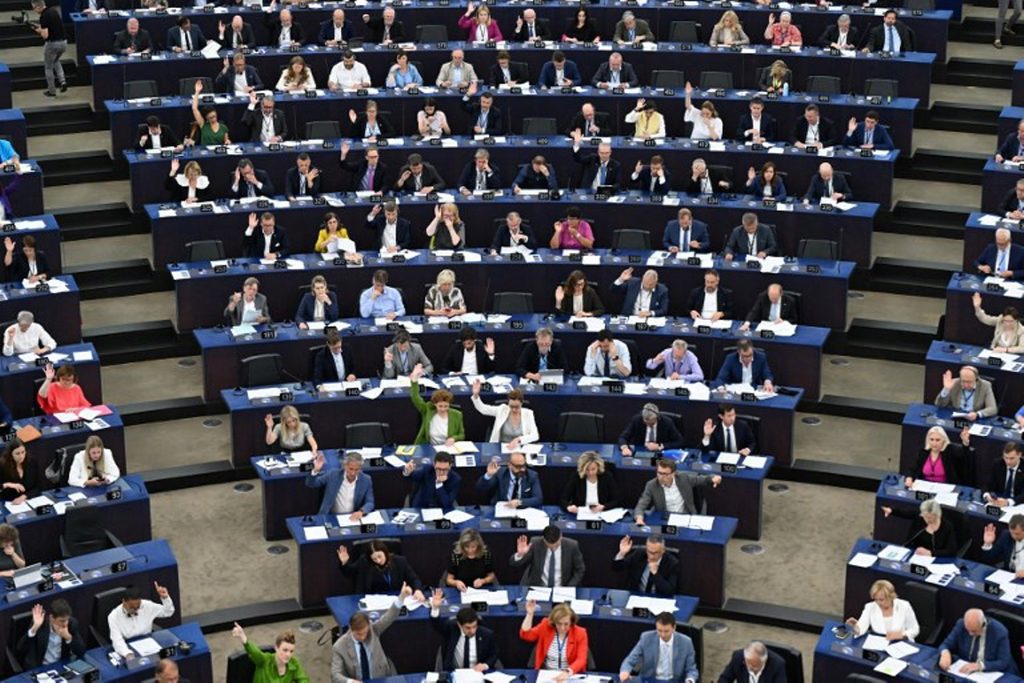Members of the European Parliament adopted legislation on Tuesday to almost double the share of renewables in EU energy consumption by 2030.
The 27 EU Member States had already approved at the cost of an exemption on nuclear-produced hydrogen to satisfy Paris.
The text, the result of an agreement reached at the end of March between the European Parliament and the 27 Member States, sets a binding target of at least 42.5% renewable energy in European consumption by 2030, up from a current level of around 22%.
It also includes an "indicative" target of 45% that EU Member States will strive to achieve.
The legislation, passed by 470 votes (120 against, 40 abstentions), must now be formally approved by the Council (the body representing the Member States) before coming into force.
The text speeds up authorisation procedures, with the establishment of "dedicated zones" where the national authorities will be required to approve new renewable energy installations within a maximum of 12 months (the period is limited to 24 months outside).
In the transport sector, by 2030 Member States will have to either reduce greenhouse gas intensity by 14.5% thanks to renewables, or achieve a 29% share of renewables in the sector’s final energy consumption. As an indication, the EU is also planning for 49% renewables in the energy consumption of buildings.
Finally, in each country, the share of renewable hydrogen in the hydrogen used by industry will have to reach 42% by 2030.
The agreement does, however, provide flexibility for countries with a nuclear fleet that can produce decarbonised hydrogen.
In addition, the text strengthens the "sustainability" criteria for biomass (wood burnt for energy) while maintaining its "renewable" status, despite protests from environmental NGOs.
According to MEP Sara Matthieu (Greens/EFA), this is "one of the most important European laws to speed up the energy transition," as it provides clarity for governments and businesses.
However, the recognition of biomass as a renewable energy source remains problematic.
"The Parliament wanted to tighten up the rules for biomass using trees, and it also wanted to completely cut subsidies for this energy source. The Member States were firmly opposed to this. This remains a weak point in the legislation," Matthieu said.

